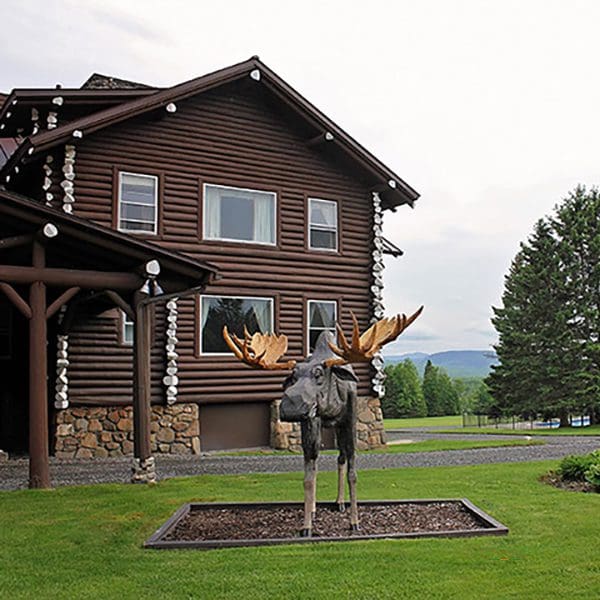
Unity Environmental University Spearheads Sustainable-Tourism Education Programming
University Unveils Two New Baccalaureate Programs in Hospitality and Tourism

Unity Environmental University, a pioneering institution in environmental education, is announcing the launch of two new baccalaureate programs within its Distance Education arm: B.S. in Tourism Destination Management and B.S. in Regenerative Hotel Management. These programs mark the beginning of a new line of programming dedicated to servicing the rapidly growing hospitality and tourism industry.
Unity President and CEO Dr. Melik Peter Khoury shared his vision for the University’s expansion, “We are introducing new programs as a first step in our broader strategy to offer a robust variety of educational opportunities, from Food Sciences to Natural Resource Conservation and Management. Our aim is to cultivate a new generation of environmental leaders, equipped with the skills and knowledge necessary to address the intricate environmental challenges of our era.”
“Tourism and hospitality intersect with all 17 global Sustainable Development Goals. If done in a regenerative way that centers on ethical and sustainable principles, tourism can help advance sustainable development in many areas,” said Dr. Lydia Horne, Associate Director of Sustainable Ecotourism and Recreation Programs at Unity Environmental University.
Dr. Horne is dedicated to the development of a comprehensive suite of Baccalaureate degree programs in regenerative tourism and hotel management.
B.S. in Tourism Destination Management: This innovative program merges a passion for travel with environmental consciousness, focusing on regenerative tourism. It aims to address critical global issues like climate change, biodiversity loss, and cultural preservation through sustainable travel experiences. Students will learn to balance local development needs, sustainable resource use, and economic security by designing and evaluating tourism experiences using regenerative principles. There’s a strong focus on project management so students can work in a wide variety of fields, such as in corporate or non-profit spaces.
B.S. in Regenerative Hotel Management: As the demand for sustainable travel options rises, this program prepares students to lead in eco-friendly hospitality management. It encompasses aspects such as climate change, circular product management, waste reduction, and culturally enriching travel experiences. The course covers sustainable hospitality, supply chain management, and a service mindset, equipping graduates for management positions in hotels, resorts, and smaller lodging facilities.

“As an industry, there have been some significant improvements to make tourism more sustainable; however, a lot of work remains if the industry is going to be part of the solution to global socio-ecological challenges. Having a workforce that understands the tourism and hospitality industry and the challenges and opportunities around sustainability will enable an industry-wide shift toward regenerative practices. Without a shift toward widespread adoption of sustainable and regenerative tourism, the industry will remain part of the problem instead of being part of the solution to global change,” said Dr. Horne.
These programs have been framed through the concept of regenerative tourism and hospitality, which incorporates principles of sustainability that balance community vitality, environmental conservation, and economic viability and adds an additional layer: that tourism should be responsible and create a net positive effect on the destination.
“I am proud to say that our students will become invaluable to the sustainable tourism industry. Our mission goes beyond mere education; we are transforming learning into action. Our graduates will not only be the obvious choice for employers in this sector but also exemplars of what it means to be culturally competent, environmentally aware professionals. We are committed to nurturing individuals who are not just career-ready but are also equipped to make a meaningful impact in the world of sustainable travel and conservation.”
Unity Environmental University is not stopping here. Plans are already underway to introduce graduate-level programs in these fields, further emphasizing the university’s commitment to providing comprehensive and innovative education in environmental sustainability across multiple fields.
About Unity Environmental University
Serving over 7,500 students nationwide, with locations throughout the State of Maine, Unity Environmental University is a leader in sustainable education. The University is dedicated to nurturing environmentally competent professionals and inspiring individuals from diverse backgrounds to preserve our planet’s ecosystems. Founded over 50 years ago, educational accessibility, flexibility, and sustainability are at the core of our institution’s identity, influencing all aspects of our operations, from degree programs to global initiatives. Learn more about us by visiting unity.edu.



